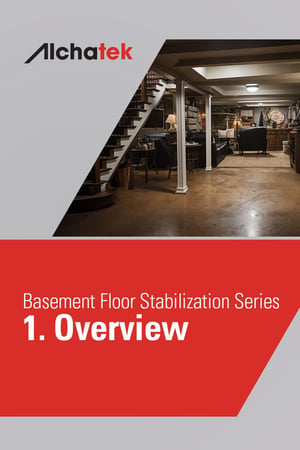
 For many homeowners, a basement represents more than just a foundation—it's an extension of their living space, a storage haven, or even a cozy retreat. Ensuring the structural integrity and safety of your basement is paramount, not just for the sake of the basement itself but for the overall health and well-being of your home and its inhabitants. The basement floor is a critical component that plays a significant role in ensuring your basement is dry, stable, and safe.
For many homeowners, a basement represents more than just a foundation—it's an extension of their living space, a storage haven, or even a cozy retreat. Ensuring the structural integrity and safety of your basement is paramount, not just for the sake of the basement itself but for the overall health and well-being of your home and its inhabitants. The basement floor is a critical component that plays a significant role in ensuring your basement is dry, stable, and safe.
Understanding the Basement Floor
At its core, the basement floor serves as a barrier between the ground and your home. It's designed to provide a solid surface, separating the living space from the damp soil and underground elements. In essence, it's the frontline defense against external factors like water, pests, and shifting soils.
However, despite a sturdy appearance, basement floors are susceptible to various issues over time. Factors such as soil erosion and natural settling can lead to problems that homeowners need to address promptly.
Common Issues with Basement Floors
Voids and Unstable Soil Beneath the Slab
Over time, the soil beneath your basement floor can erode or compact, leading to voids or spaces underneath the slab. These voids can cause your basement floor to crack or even cave in if left untreated. This phenomenon is more than a mere cosmetic issue; it can pose a genuine threat to the structure's stability.
Water Seepage
Water has a way of finding its path into our homes, especially if there's a weak point or vulnerability. The basement floor, being underground, is at a higher risk of water seepage, especially during heavy rainfalls or if there's a high water table in the area. Water seeping through the floor can lead to mold growth, damage to stored items, and an overall damp environment detrimental to the house's inhabitants.
Cracks and Uneven Surfaces
Cracks can develop in basement floors for a multitude of reasons. They might be due to the house settling, the expansion and contraction of the concrete with temperature changes, or because of pressure from soil or water outside. These cracks, if left untreated, can widen over time, allowing more water to seep in and potentially leading to more significant structural issues and even trip hazards.
Key Takeaways
- Addressing basement floor issues isn't just about maintaining aesthetics or increasing property value; it's about ensuring the safety, health, and longevity of your home.
- Early detection and intervention are key.
- If you notice signs of sinking, cracks, or water seepage in your basement floor, it's imperative to seek professional advice.



